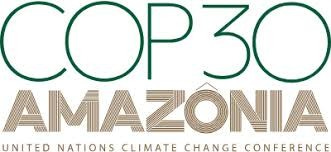The United Nations Climate Change Conference, or Conference of the Parties (COP) for short, has grown massively in size, attracting tens of thousands of participants each year. Over 83,000 attended COP28 in Dubai, beating the previous record of around 50,000 set in Sharm El-Sheikh in Egypt the year before. COP29 in Baku, Azerbaijan, saw a total of 54,148 attendees, falling between the previous two COPs.
Since 1995, climate negotiations have attracted a wide range of actors beyond government officials. Ballooning attendance, however, has brought criticism to the process and incited various suggestions for reform. This year, COP30 will take place in Belém, the capital of the northern state of Pará, Brazil. The Brazilian government estimates about 50,000 people in attendance including up to 150 heads of state.
Hosting such a large international gathering in an impoverished city with limited infrastructure located at the mouth of the Amazon river poses several logistical challenges. For instance, an eight-mile (13 kilometers) stretch of pristine rainforest was cleared to build a four-lane highway to Belém. Ana Toni, national secretary for climate change and COP30 executive director, told the press that the road was not being built specifically for the summit, but was instead infrastructure required for the city.
The project provides no direct benefits to the affected communities who have no access to the highway and received no compensation from the government after losing income from the cutting of açaí berry trees they harvest. Researchers have warned about ecosystem fragmentation and the consequences of habitat loss for wildlife. Several animals have been hurt or killed during construction. All of which raises hard questions about the kind of development priorities and interventions cities like Belém need to alleviate poverty while moving toward sustainability.
President Lula has said that his goal in bringing COP30 to the Amazon was to focus the world’s attention on a forest that both offers unique solutions to climate change, by locking away planet-warming carbon, and suffers some of its gravest consequences in the form of wildfires and drought. 2024 saw a record-breaking fire season, with 13.4 million acres burned by August, the highest since 2005.
Rainforests play a critical role in the attainment of the 2030 Sustainable Development Goals. Brazil supports the Rainforest Alliance’s work in South America alongside Colombia, Peru and Ecuador. In 2022, after Lula was reelected, the government formalized a long sought partnership with the Republic of Congo and Indonesia, the two other largest rainforest nations, to cooperate on forest preservation. To his credit, Lula has reduced deforestation in the Amazon and promoted solutions such as carbon credits and the bioeconomy.
At the same time, last year, Brazil exported more oil than soybeans. According to some experts, the country is on track to become the world’s fifth-largest oil producer by 2030. Last February, the government approved joining OPEC+, a group of major oil exporting nations led by Saudi Arabia and Russia. The Brazilian Institute of the Environment and Renewable Natural Resources is moving forward with the environmental licensing for Petrobras offshore exploration in the Equatorial Margin, right at the mouth of the Amazon Delta, one of the most pristine and diverse marine ecosystems in the world.
Lula’s argument to reconcile increased oil production with the urgent need to abate greenhouse gas emissions is that new oil revenues could finance a transition to green energy. Lula also wants richer nations to contribute financially to preserve the Amazon. COP30 is the right forum to apply pressure and work collectively to devise such a mechanism. The question is whether Brazil can provide credible leadership and wrangle countries' solidarity in pursuit of a global sustainable economy.
The climate surrounding COP30 is getting hot (pun intended). Last year, the world temporarily breached the 1.5 degree warming limit above pre-industrial levels. This year marks the second global stocktake deadline under the Paris Agreement. Only 21 countries have submitted their emission reductions targets. In the meantime, the Trump Administration has withdrawn the United States, the second largest world emitter after China, from the pact. Economic uncertainty resulting from a global trade war initiated by the United States, especially vis-à-vis China, risks slowing access to clean energy technologies. Although there is debate amongst trade experts on the specific impacts of tariffs and other trade restrictions on the energy transition.
Centering this year’s climate conference around both the challenges and the solutions that poorer countries bring to the table could help the negotiation process regain its focus, direction, legitimacy and hope.





I'm afraid these conferences aren't helping improve the climate situation very much. They generate a lot of press, but they haven't produced any lasting or effective solutions. I think other international mechanisms and agreements will be necessary to make better progress.